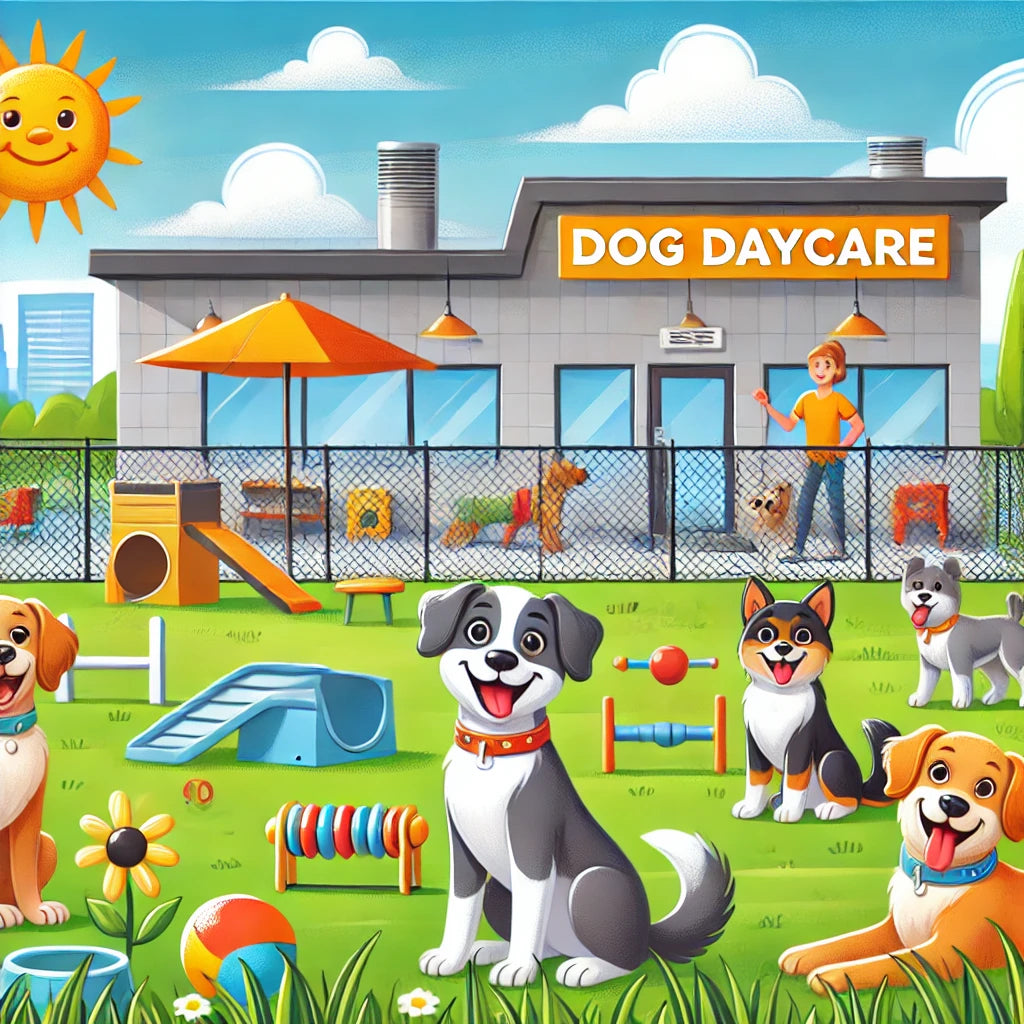
Dog Daycare: A Complete Guide for Pet Parents
Share
Taking care of your furry friend is a top priority, and sometimes, your busy schedule means you need help. That’s where dog daycare comes in! But is it the right choice for your dog? Let’s dive into everything you need to know about dog daycare, from choosing the best facility to exploring alternatives.
Can Dog Daycare Cause Aggression?
Understanding Aggression in Dogs
Aggression in dogs can have multiple triggers, such as fear, stress, or a lack of socialization. While dog daycare is meant to provide a safe, fun environment for dogs, there’s a possibility that some dogs might develop behavioral issues if the daycare isn’t the right fit.
Why Might Aggression Develop in Daycare?
- Overcrowding: Too many dogs in one space can be overwhelming.
- Poor Supervision: Lack of trained staff to manage conflicts between dogs.
- Mismatched Temperaments: Reactive or shy dogs might feel threatened around more dominant or energetic dogs.
How to Prevent Aggression at Daycare
- Choose a Reputable Facility: Look for daycares with trained staff and a focus on safety.
- Assess Your Dog's Needs: If your dog has a reactive or shy personality, discuss this with the daycare staff to ensure proper care.
- Monitor Behavior: Keep an eye on your dog’s behavior after daycare visits and address issues early.
How to Choose the Best Dog Daycare
Factors to Consider
Picking the right dog daycare is essential for your dog’s safety and happiness. Here’s what to look for:
1. Staff Qualifications
Are the staff trained in canine behavior and first aid? Knowledgeable employees can handle emergencies and ensure your pup feels secure.
2. Cleanliness and Hygiene
Visit the facility to check for cleanliness. A good daycare will have protocols for cleaning and sanitizing play areas.
3. Dog-to-Staff Ratio
Ask about the ratio of dogs to staff. A lower ratio ensures each dog gets proper attention.
4. Screening Process
Reputable daycares evaluate dogs for temperament and compatibility with other dogs before allowing them in the group.
5. Facilities and Activities
Check for secure play areas, comfortable rest spaces, and engaging activities. A mix of exercise and downtime is essential for dogs.
Questions to Ask the Daycare
- What is your emergency protocol?
- How do you handle dog conflicts?
- Are there specific areas for small or shy dogs?
Alternatives to Dog Daycare
If dog daycare isn’t the right option for your pet, consider these alternatives:
1. Dog Walkers
Hiring a dog walker can provide your pup with one-on-one attention and exercise during the day.
2. Pet Sitters
Pet sitters can stay with your dog at home, keeping them comfortable in a familiar environment.
3. Playdates with Friends
Coordinate with friends who have dogs to organize playdates. This allows your dog to socialize in a smaller, controlled setting.
4. Training Classes
Enroll your dog in a training class that incorporates socialization. It’s a great way to teach skills while meeting other dogs.
Should I Take My Dog to Daycare?
Benefits of Dog Daycare
- Socialization: Your dog interacts with other dogs and people.
- Exercise: Keeps your dog active, preventing boredom and destructive behavior.
- Mental Stimulation: New environments and activities keep their minds sharp.
When to Avoid Daycare
- Health Concerns: Puppies without vaccinations or dogs with contagious illnesses.
- Stressful for Your Dog: If your dog shows signs of anxiety or fear at daycare, it might not be the right fit.
Dog Daycare for Reactive Dogs
What Are Reactive Dogs?
Reactive dogs are those that overreact to certain stimuli, such as other dogs, loud noises, or unfamiliar environments.
Can Daycare Help Reactive Dogs?
Yes, but only if the daycare is equipped to handle their needs. Look for facilities with:
- Smaller playgroups.
- Staff trained in managing reactive behaviors.
- Quiet zones where dogs can take breaks.
Preparing a Reactive Dog for Daycare
- Training: Work on basic commands and socialization before introducing your dog to daycare.
- Gradual Introduction: Start with shorter visits to help your dog acclimate.
- Communicate with Staff: Share details about your dog’s triggers and behavior.
Conclusion
Dog daycare can be an excellent solution for keeping your furry friend happy, healthy, and well-socialized. However, it’s crucial to choose the right facility and ensure your dog’s temperament matches the daycare environment. For reactive dogs or those who don’t enjoy group settings, alternatives like dog walkers or pet sitters might be better options.
When in doubt, consult with your veterinarian or a dog behaviorist to determine the best care plan for your pup.
FAQs
Is Dog Daycare Good for All Dogs?
Not all dogs thrive in daycare. Consider your dog’s temperament, health, and social needs before enrolling.
How Much Does Dog Daycare Cost?
Prices vary by location and services, but expect to pay between $20-$50 per day.
Can Puppies Go to Daycare?
Puppies can attend daycare after completing their vaccinations, typically around 12-16 weeks old.
How Do I Know If My Dog Likes Daycare?
Signs your dog enjoys daycare include wagging tails, excitement when arriving, and a happy demeanor at pick-up.
What Happens If My Dog Misbehaves at Daycare?
Most facilities will inform you about incidents and work with you to address any issues. Consistent misbehavior might require alternative care options.